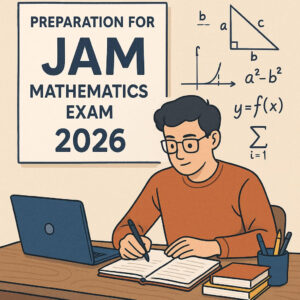Introduction
The Joint Admission Test for M.Sc. (IIT JAM) in Biotechnology is one of the most competitive postgraduate entrance examinations in India. Every year, thousands of aspirants vie for limited seats in premier institutions like the Indian Institutes of Technology (IITs) and Indian Institute of Science (IISc). Aiming to secure admission into coveted M.Sc., Joint M.Sc.-Ph.D., M.Sc.-Ph.D. Dual Degree, and other Post-Bachelor’s programs, candidates must develop a clear understanding of the exam structure, syllabus, preparation strategy, and admission process. This exhaustive 5000-word article will serve as your one-stop resource, covering every aspect of IIT JAM Biotechnology.
1. Understanding the IIT JAM Exam
1.1 Purpose and Importance
The IIT JAM Biotechnology exam evaluates candidates’ mastery of undergraduate-level concepts in biology, chemistry, mathematics, and physics. Cracking this exam opens doors to world-class research facilities, experienced faculty, and interdisciplinary exposure—crucial for a thriving career in biotechnology, pharmaceuticals, healthcare, and research.
1.2 Conducting Body
The exam is administered annually by one of the IITs or IISc on a rotational basis. Recent years saw IIT Madras, IIT Delhi, and IISc Bangalore as organizers. The exam is conducted online (Computer-Based Test), ensuring uniformity and transparency.
1.3 Key Features
- Mode: Computer-Based Test (CBT)
- Duration: 3 hours (180 minutes)
- Total Marks: 100
- Question Types: Multiple Choice Questions (MCQ), Multiple Select Questions (MSQ), Numerical Answer Type (NAT)
- Sections: Biotechnology syllabus spans Biology, Chemistry, Mathematics, and Physics.
2. Detailed Syllabus Breakdown
A robust preparation begins with a thorough understanding of the syllabus. The IIT JAM Biotechnology syllabus is divided into four major sections:
2.1 Biology
- General Biology: Classification, taxonomy, biodiversity, plant and animal physiology
- Biochemistry: Structure and function of biomolecules (carbohydrates, proteins, lipids, nucleic acids)
- Cell Biology: Cell structure, organelles, membrane dynamics
- Molecular Biology: DNA replication, transcription, translation, gene regulation
- Microbiology & Immunology: Microbial growth, sterilization, immune response, vaccines
2.2 Chemistry
- Physical Chemistry: Thermodynamics, chemical equilibrium, kinetics, solutions
- Organic Chemistry: Reaction mechanisms, biomolecule synthesis, functional groups
- Analytical Techniques: Spectroscopy, chromatography basics relevant to biotech
2.3 Mathematics
- Calculus: Limits, continuity, differentiation, integration, application in growth models
- Algebra & Matrices: Determinants, matrices, systems of equations
- Probability & Statistics: Basic probability, distributions, data interpretation
2.4 Physics
- Mechanics: Laws of motion, work-energy, fluid mechanics applications
- Waves & Oscillations: Concepts relevant to spectroscopy or imaging techniques
- Electricity & Magnetism: Basic circuits, electromagnetism principles in lab equipment
3. Exam Pattern and Question Paper
Understanding the exam pattern helps strategize time management and question selection.
- Section A: 30 one-mark MCQs; no negative marking encourages attempts.
- Section B: 10 two-mark MCQs; 0.5 marks deducted for incorrect answer.
- Section C: 10 two-mark MSQs; select one or more correct options.
- Section D: 20 Numerical Answer Type questions; answers are real numbers.
4. Eligibility Criteria and Important Dates
4.1 Eligibility Criteria
- Academic Qualification: Bachelor’s degree in a relevant field (Biotech, Life Sciences, Biochemistry, etc.)
- Minimum Marks: 55% aggregate (50% for SC/ST/PwD)
- Final Year Students: Eligible to apply, subject to meeting criteria at admission.
4.2 Important Dates (Tentative for 2026)
- Notification Release: August 2025
- Online Registration Begins: September 2025
- Last Date to Apply: October 2025
- Admit Card Availability: January 2026
- Exam Date: Second Sunday of February 2026
- Results Announcement: March 2026
Tip: Regularly check the official JAM website for exact dates.
5. Recommended Books and Resources
A curated list of textbooks and online resources ensures comprehensive coverage.
5.1 Biology & Biotechnology
- U. Satyanarayana, Biotechnology – Clear explanations of fundamental concepts.
- Alberts et al., Molecular Biology of the Cell – Advanced insights into cell and molecular biology.
- Nelson & Cox, Lehninger Principles of Biochemistry – Detailed biochemistry coverage.
5.2 Chemistry
- P. Bahadur, Physical Chemistry – Concise theory and practice problems.
- Morrison & Boyd, Organic Chemistry – Classic reference for organic mechanisms.
- Atkins & de Paula, Physical Chemistry – For deeper conceptual clarity.
5.3 Mathematics
- B.S. Grewal, Higher Engineering Mathematics – Comprehensive problem sets.
- S. Chand, Mathematical Statistics – Probability and statistics tailored for life sciences.
5.4 Physics
- H.C. Verma, Concepts of Physics – Fundamental physics problems.
- Resnick, Halliday & Walker, Fundamentals of Physics – Detailed theory.
5.5 Online Platforms and Coaching Materials
- NPTEL Lectures on Biotechnology, Biochemistry, and related topics.
- Previous Years’ Papers from IIT JAM official website.
- Mock Tests offered by coaching institutes like GateIIT.
6. Strategic Preparation Plan
A structured study plan spanning 6–9 months maximizes performance.
6.1 Phase 1: Foundation Building (Months 1–3)
- Syllabus Mapping: Break down topics-week wise.
- Conceptual Reading: Focus on understanding before memorizing.
- Note-Making: Create concise notes for quick revision.
6.2 Phase 2: Practice and Application (Months 4–6)
- Problem-Solving: Solve chapter-end exercises from standard books.
- Topic-Wise Tests: Regular quizzes to assess understanding.
- Doubt Clearing: Group discussions or coaching sessions.
6.3 Phase 3: Revision and Mock Tests (Months 7–9)
- Full-Length Mocks: Simulate exam conditions.
- Analysis: Review mistakes and refine strategy.
- Rapid Revision: Flashcards for formulas, pathways, and key facts.
6.4 Weekly Time Table Sample
7. Preparation Tips and Tricks
7.1 Conceptual Clarity Over Rote Learning
Biotechnology demands understanding processes—memorization alone won’t help in application-based questions.
7.2 Active Recall and Spaced Repetition
Use flashcards (Anki) to periodically revisit key concepts, biochemical pathways, and equations.
7.3 Regular Practice of Previous Papers
Analyze patterns, frequently asked topics, and question difficulty.
7.4 Time Management Skills
Allocate time per section; don’t get stuck on difficult questions.
7.5 Group Study and Peer Learning
Teaching peers enhances retention; discussing tricky problems offers new perspectives.
7.6 Healthy Routine
Balanced diet, adequate sleep, and short breaks maintain mental agility.
8. Admission Process via Common Admission Process (CAP)
8.1 Registration on CAP Portal
After JAM results, register on CAP portal specifying program preferences and institute choices.
8.2 Seat Allotment
Based on merit list (JAM score) and preferences, seats are allotted in rounds.
8.3 Document Verification
Original certificates, category certificates, and qualifying degree proof required.
8.4 Fee Payment and Confirmation
Pay admission fees within stipulated deadlines to confirm seat.
9. Frequently Asked Questions (FAQs)
Q1. Can final-year students apply? A1. Yes, provided they complete the degree with required marks before admission.
Q2. Is coaching mandatory? A2. No, but structured guidance can help streamline preparation.
Q3. Which section carries the most weight? A3. Biology often has maximum questions, but multidisciplinary strength is key.
Q4. How to improve speed? A4. Timed mock tests, sectional practice, and selective question choice.
10. Conclusion
Preparing for IIT JAM Biotechnology is a rigorous but rewarding journey. By understanding the exam format, mastering core concepts, practicing diligently, and maintaining a balanced routine, you can significantly enhance your chances of success. Start early, stay consistent, and leverage resources effectively to crack IIT JAM 2026 and embark on an exciting academic and research career.
All the best for your IIT JAM Biotechnology preparation!



